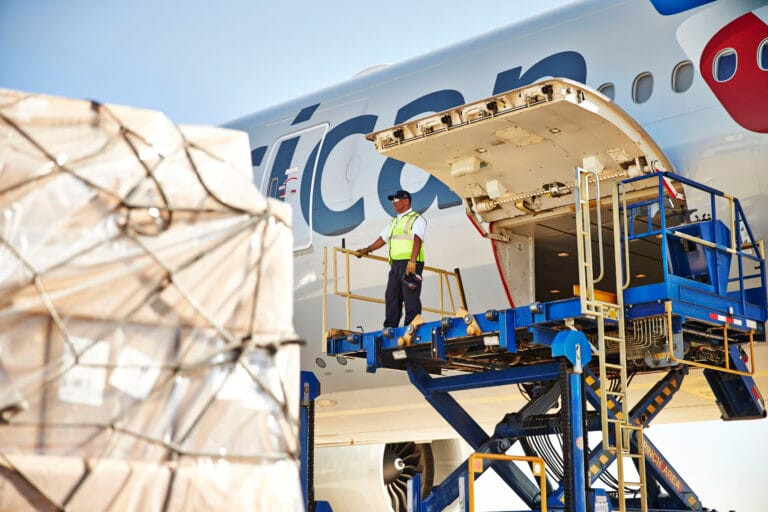The Covid-19 pandemic really brought airfreight to the forefront when time and speed of delivery were of the essence. The industry saw a lot of examples of medicine and vaccines moving to air transport, thus expanding an already strong market within the industry. Life Sciences products – which cover a vast range of commodities, including pharmaceuticals and vaccines – are becoming more and more specialised, specific and sensitive to handling processes, which is why companies are seeing trends like expanded infrastructure and stronger collaboration across the industry for safe and effective transport.
“We’ve seen improvement and innovation across Pharmaceutical and Vaccine Distribution, expansion of infrastructure across supply chain networks, advanced monitoring technologies, improved packaging solutions, and enhanced industry standards and collaboration,” Eric Mathieu, Head of Customer Experience and Products at American Airlines Cargo (AA Cargo), stated.
“Our ExpediteTC traffic, which is our temperature-sensitive product with both active and passive solutions, is a critical part of our business mix. Year over year so far, we are seeing consistent volumes into and out of our US hubs including our CEIV certified stations.”
Partnered-up
Having a partnership with Envirotainer, CSafe and Sonoco Thermosafe ensures AA Cargo can offer customers customised solutions that can adapt to various product types and shipping conditions.
Each partner brings expertise in their domain, ensuring that clients receive containers that meet industry standards and regulations. Also, having access to cutting-edge technology and sustainable practices enhances the service offerings, appealing to clients looking for modern and eco-friendly solutions. Together, these partnerships provide a one-stop solution for our customers, simplifying the logistics process and improving overall efficiency.
“Collaboration and partnerships will remain key as we see this market evolve. Players along the supply chain could benefit further from strategic partnerships to enhance their cool-chain capabilities and lead to shared resources, expertise, and innovations,” Mathieu elaborated.
“Enhanced visibility along the shipment journey will help in monitoring temperature conditions and improving trust among stakeholders.”
Growing network
Having John F. Kennedy (JFK) and Luis Munoz Marin International Airport (SJU) join AA Cargo’s network of CEIV-certified stations adds enhanced support across its East Coast network with strategic expansion into the Latin American region. SJU is a big exporter of pharmaceuticals with extensive service into Miami International Airport where freight can connect onward across our domestic network via Dallas Fort Worth, Philadelphia International Airport (PHL), and JFK – all while remaining at CEIV-certified stations.
“I think we’re going to see continued increase in demand for temperature-sensitive products and solutions,: Mathieu outlined.
“As the pharmaceutical and food sectors continue to expand, the need for dependable cool-chain logistics will grow with more specificity.
“I think we will also see technology such as Internet of Things (IoT) devices and blockchain technology driving innovations that will improve tracking and monitoring. Real-time data analytics will enable proactive responses to temperature deviations and streamline logistics, enhancing overall efficiency and reliability.
“From a global and regulatory standpoint, as regulations around food safety and pharmaceutical transport become stricter, companies will need to adapt their cool-chain strategies to comply. This will drive investment in more sophisticated temperature-controlled solutions and standardised practices. With increasing global trade, businesses will face challenges related to varying climate conditions and infrastructure. Adaptable cool-chain solutions that can cater to diverse geographical needs will become essential.”



